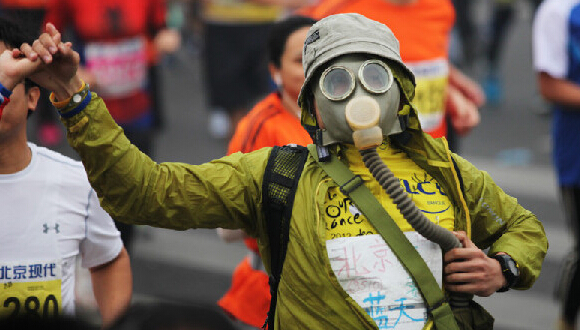They've peered from the Empire State Building, admired masterpieces at the Louvre, and relaxed at the hot springs near Mount Fuji, and now Chinese tourists are tackling the next thing on their must-do lists: world-class marathons.
The trend is apparent at the Gold Coast Airport Marathon, held every July in Queensland, Australia. The number of Chinese participating in the race has risen from just 27 in 2013 to 161 last year and 251 this year.
China's outbound tourists hit 100 million last year and have unseated Americans as the world's biggest spenders on foreign travel, said Mark Williams, an economist at Capital Economics in a research note Tuesday.
The arrival of Chinese tourists - and their money - has spurred governments and tourism organizations worldwide to make the world's top destinations more accessible and appealing to Chinese visitors.
The Gold Coast Airport Marathon, recognized by the International Association of Athletics Federations (IAAF) with Gold Label status, has long been a selling point for tourism in the eastern Australian region.
While other IAAF-awarded marathons in New York City, Boston, London and Tokyo hold their events during the northern hemisphere's cooler months, the winter down under makes July an ideal time for a run.
Grace Pan, Tourism and Events Queensland's director for the greater China region, told Xinhua that the marathon has gained popularity among Chinese runners thanks to promotional campaigns over the past three years.
Beijing and Shanghai also organize annual international marathons, but the air pollution in recent years has discouraged many from racing. During last year's Beijing Marathon, some runners wore gas masks and carried posters calling for blue skies while running through the Chinese capital.
In contrast, the Gold Coast Marathon lures Chinese tourists with its spectacular beach views. While most famous marathons are held in cities, the Gold Coast Marathon is set along sunny, golden beaches.
"Air pollution is a pretty scary thing for those who consider running the marathon here in Beijing," said Cheng Yang, a 34-year-old media professional in Beijing who has run 19 IAAF-awarded marathons, including the Gold Coast's.
The marathon began offering announcements and services in Chinese this year for the growing number of Chinese participants. It has also opened a "Greater China Resting Lounge" for runners from China.
Pan added that promotions in the future will combine marathons with leisure travel by offering more discounts on air tickets and hotels.
Su Qinsheng, a 61-year-old retiree from East China's Shandong province, participated in this year's Gold Coast Marathon. It was the 166th marathon for Su, who has previously run marathons in New York City, Boston and Athens.
Su said the marathon was his first visit to Australia. Though he doesn't speak English, Su feels language is not a problem. He managed to navigate the whole trip using an electronic dictionary and maps.
For Cheng, the Beijing media worker, running overseas marathons is about more than just achieving a personal best time. "I've been to the Gold Coast marathon before, and this year I brought my child to enjoy the beautiful scenery there," he said.
